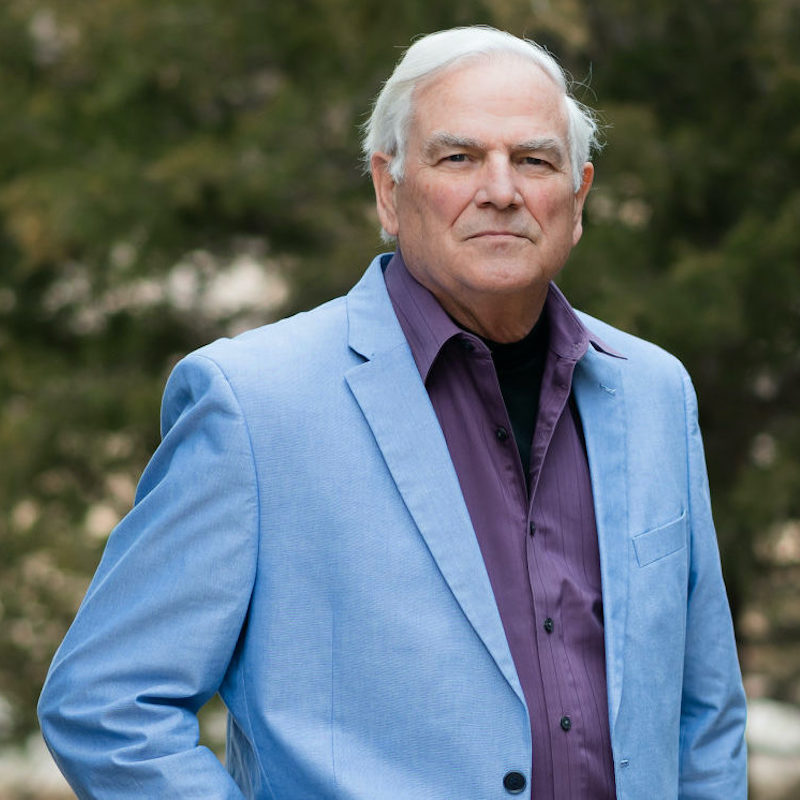In this week’s edition of Hearing International, we embark on an exploration of Homeopathic Medicine, aiming to determine whether it is a legitimate practice or mere quackery that has been unjustly criticized by the traditional medical community. Homeopaths assert that new techniques, such as brain scans that observe the effects of homeopathic remedies on brain and nerve centers, provide evidence of the efficacy of homeopathic medicine. However, despite the prevalence of this information, there is a lack of documented research supporting these brain images, leading traditional medicine to dismiss such studies as mystical. The fundamental question remains: if homeopathic remedies are indeed effective, what is the underlying mechanism by which they work?
It is an undeniable fact that the mechanism of action for homeopathic remedies has not been scientifically established. If these remedies do prove effective, their mode of action would seemingly contradict well-established principles of physics, chemistry, and pharmacology, or it may be a mechanism that is yet to be discovered. This conundrum echoes the sentiment expressed by one early critic of homeopathy: either Hahnemann, the founder of homeopathy, is right, and our scientific knowledge is fundamentally flawed, or he is wrong, rendering homeopathy nonsensical.
 As we recall from the previous installments of this series, homeopathic medication involves the administration of highly diluted substances, often diluted in lactose, alcohol, water, or another medium. The intention is to stimulate the individual’s immune response to the specific disorder or symptoms. These remedies are formulated based on several loosely defined “laws.”
As we recall from the previous installments of this series, homeopathic medication involves the administration of highly diluted substances, often diluted in lactose, alcohol, water, or another medium. The intention is to stimulate the individual’s immune response to the specific disorder or symptoms. These remedies are formulated based on several loosely defined “laws.”
In the previous week’s discussion, we examined the first law, which posits that “like cures like,” implying that an agent that induces certain symptoms in a healthy person will be effective in treating those same symptoms in an individual who is unwell. While the underlying theory behind this law may seem more like magic than scientific treatment, it is worth noting that this principle aligns with mainstream medicine, as many vaccines incorporate elements of the targeted strain.
Proper Dosing of Treatment
One shared characteristic between homeopathy and traditional medicine is the emphasis placed on proper dosing of treatments. Homeopathic remedies are available in a wide range of concentrations, with a key distinction being that homeopathic doses are incredibly small. In homeopathy, the philosophy revolves around the notion that less is more, so a large dose is considered a high dilution rather than a high concentration. Comparatively, traditional medications are typically administered in higher doses.
This prompts us to question: just how minuscule are these homeopathic doses?
Generally, homeopathic remedies are diluted using factors of either 10 or 100. In the 1980s, Ramey et al. described these dilutions in the Journal of the Franklin Institute, introducing “D” and “C” dilutions. “D” dilutions involve serial dilutions of 1:10, while “C” dilutions employ serial dilutions of 1:100. For instance, a remedy labeled as C30 signifies a 1:100 dilution performed 30 times. By employing simple mathematics, we can ascertain that at dilutions such as C12 (1:100 dilution repeated 12 times) or D24 (1:10 dilution repeated 24 times), it is highly unlikely that even a single molecule of the original substance remains.
Consequently, the extreme dilution of homeopathic remedies has led to speculation regarding their mechanism of action. Proposed explanations encompass the formation of stable ice crystals, the magnetic properties of water, or the development of protein shells in the water mixture. Water molecules possess strong polarization, a characteristic that already contributes to the unique role of water in biological systems. Nevertheless, the ability of water to sustain complex ice-like structures during the vigorous shaking involved in homeopathic preparation remains unsubstantiated. Furthermore, no physical mechanism has been identified through which these hypothetical structures could elicit the implied biological effects.
While homeopaths argue for the effectiveness of their remedies, the lack of solid research and the absence of a scientifically established mechanism of action leave room for skepticism.
The practice of homeopathy challenges conventional scientific principles, inviting further investigation into its underlying principles and potential benefits. Only through rigorous research and exploration can we arrive at a more comprehensive understanding of homeopathic medicine.
What Does the FDA Think?
In the US agency that oversees drugs and medical treatments is the US Food and Drug Administration(FDA). The FDA has learned of a few reports of illness associated with the use of homeopathic remedies.
However, the FDA reviewed these reports and decided that the remedies were not likely to be the cause, because of the high dilutions. Here is some general information that has been reported about risks and side effects in homeopathy:
- Homeopathic medicines in high dilutions, taken under the supervision of trained professionals, are considered safe and unlikely to cause severe adverse reactions. •Some patients report feeling worse for a brief period of time after starting homeopathic remedies. Homeopaths interpret this as the body temporarily stimulating symptoms while it makes an effort to restore health.
- Liquid homeopathic remedies can contain alcohol and are permitted to have higher levels of alcohol than conventional drugs for adults. This may be of concern to some consumers. However, no adverse effects from the alcohol levels have been reported either to the FDA or in the scientific literature.
- Homeopathic remedies are not known to interfere with conventional drugs; however, if you are considering using homeopathic remedies, you should discuss this with your health care provider. If you have more than one provider, discuss it with each one. As with all medicinal products, a person taking a homeopathic remedy is best advised to:
- Contact his health care provider if his symptoms continue unimproved for more than 5 days
- Keep the remedy out of the reach of children.
- Consult a health care provider before using the product if the user is a woman who is pregnant or nursing a baby.
With that said,the FDA has long had issues with the quality and research into these remedies. In 2012, homeopathic products from A Nelson & Co., a British company that manufactures many products including, Nelson’s line of pain relievers, digestion aids, emotional aids, energy, acne products and Bach Rescue Remedies sold in the US were inspected by the FDA and the conclusions are alarming.
The FDA Warning letter said, “During the inspection, the investigator observed glass fragments present during the manufacture… Your firm failed to implement adequate measures to prevent glass contamination and had no documentation to demonstrate that appropriate line clearance and cleaning is conducted following occurrences of glass breakage, which has been a recurring problem.”
So, not only are there some questionable results, but also these “remedies” may be hazardous to your health.
Conclusion?
In 2009 the British Science and Technology Select Committee (BSTSC) conducted a comprehensive study into whether homeopathy has any scientific validity. The report was devastating: homeopathy is not efficacious, and explanations for why homeopathy would work are scientifically implausible. The BSTSC concluded that there was no REAL evidence these remedies actually cure disease. To some, “the jury is still out” on homeopathic medicine but Novella , of Science Based Medicine and a number of others side with the BSTSC.
Novella indicates that homeopaths should be careful what they wish for as in the last few decades purveyors of these dubious medical treatments and products have been trying to go mainstream, and they have had some unfortunate success. They asked for serious scientific investigation into their claims and they got it. They asked to be treated like real medicine (but not really, they only want the trappings of legitimacy, not the substance), and when they actually are treated with the standards similar to science-based medicine, they cry foul.
The response of the fake-medicine lobby is not to alter their claims to fit the evidence, or to carry out better studies, or to clean up their act when problems are brought to their attention – but to attack their critics. Homeopathy in his opinion is perhaps the best example of this behavior. Homeopathy’s biggest marketing advantage is that most people don’t know what it really is.
I want people to know exactly what homeopathy is – sugar pills. They are placebos on which the equivalent of a magical ritual has been cast. Active ingredients, which themselves are as fanciful as fairy dust, are diluted into non-existence.
These charges notwithstanding, next week Hearing International will investigate these treatments for Tinnitus Treatment.
 Robert M. Traynor, Ed.D., is a hearing industry consultant, trainer, professor, conference speaker, practice manager and author. He has decades of experience teaching courses and training clinicians within the field of audiology with specific emphasis in hearing and tinnitus rehabilitation. He serves as Adjunct Faculty in Audiology at the University of Florida, University of Northern Colorado, University of Colorado and The University of Arkansas for Medical Sciences.
Robert M. Traynor, Ed.D., is a hearing industry consultant, trainer, professor, conference speaker, practice manager and author. He has decades of experience teaching courses and training clinicians within the field of audiology with specific emphasis in hearing and tinnitus rehabilitation. He serves as Adjunct Faculty in Audiology at the University of Florida, University of Northern Colorado, University of Colorado and The University of Arkansas for Medical Sciences.
**this piece has been updated for clarity. It originally published on January 29, 2013








Bob,
Nice article. I can also agree that there is much to be learned or dissected from the medical research end to find a benefit to the homoeopathic success as a tinnitus treatment. A “sugar pill” was a colorful way to say it. I do agree however that there is much clinical documentation of success in helping those with tinnitus from the devices such as Widex Zen, neuromonics Oasis, as well as the emerhing device Sound Cure.
Rich